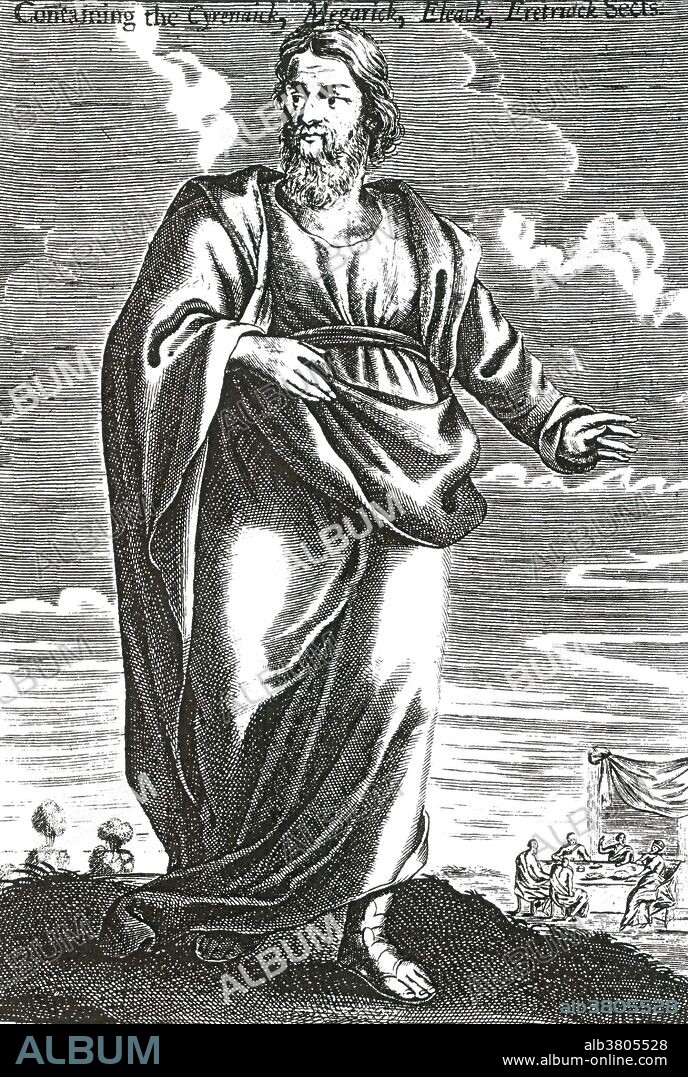alb3805528
Aristippus of Cyrene, Ancient Greek Philosopher

|
Zu einem anderen Lightbox hinzufügen |
|
Zu einem anderen Lightbox hinzufügen |



Haben Sie bereits ein Konto? Anmelden
Sie haben kein Konto? Registrieren
Dieses Bild kaufen

Titel:
Aristippus of Cyrene, Ancient Greek Philosopher
Untertitel:
Siehe automatische Übersetzung
Aristippus of Cyrene (435 - 356 BC) was the founder of the Cyrenaic school of Philosophy (the Cyrenaics were an ultra-hedonist Greek school of philosophy). He was a pupil of Socrates, but adopted a very different philosophical outlook, teaching that the goal of life was to seek pleasure by adapting circumstances to oneself and by maintaining proper control over both adversity and prosperity. He lived luxuriously, was happy to seek sensual gratification and the company of the notorious Lais, an infamous courtesan of ancient Greece. He took money for his teaching and told Socrates that he resided in a foreign land in order to escape the trouble of involving himself in the politics of his native city. Among his pupils was his daughter Arete, who, in turn, imparted it to her son, Aristippus the Younger, who is said to have reduced it to a system. Engraving from "The History of Philosophy" by Thomas Stanley published in three successive volumes between 1655 and 1661.
Bildnachweis:
Album / Science Source
Freigaben (Releases):
Model: Nein - Eigentum: Nein
Rechtefragen?
Rechtefragen?
Bildgröße:
2820 x 4200 px | 33.9 MB
Druckgröße:
23.9 x 35.6 cm | 9.4 x 14.0 in (300 dpi)
Schlüsselwörter:
4. JAHRHUNDERT V. CHR. • 4. JAHRHUNDERT VOR CHRISTUS • 4. JH. V. U. Z. • 5. JAHRHUNDERT V. CHR. • 5. JH. V. U. Z. • BERÜHMT • BERÜHMTE PERSÖNLICHKEIT • ILLUSTRATION • ILLUSTRATIONS • MANN • NOTABEL • PERSON • PERSöNLICHKEITEN • PERSÖNLICHKEITEN • PHILOSOPHIE • PORTRAIT • PROMINENZ • WISSENSCH.: PHILOSOPHIE
 Pinterest
Pinterest Twitter
Twitter Facebook
Facebook Link kopieren
Link kopieren Email
Email
